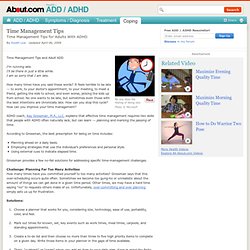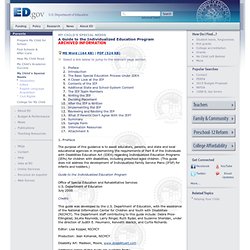

Sensory Diet Activities - SensorySmarts. What is a sensory diet? Just as your child needs food throughout the course of the day, his need for sensory input must also be met. A “sensory diet” (coined by OT Patricia Wilbarger) is a carefully designed, personalized activity plan that provides the sensory input a person needs to stay focused and organized throughout the day. Just as you may jiggle your knee or chew gum to stay awake or soak in a hot tub to unwind, children need to engage in stabilizing, focusing activities too.
Infants, young children, teens, and adults with mild to severe sensory issues can all benefit from a personalized sensory diet. Each child has a unique set of sensory needs. The great news is that the effects of a sensory diet are usually immediate AND cumulative. Tolerate sensations and situations he finds challenging regulate his alertness and increase attention span limit sensory seeking and sensory avoiding behaviors handle transitions with less stress Creating a Sensory Diet: The Ingredients Jump! Swing. Sensory-diet. Equine Therapy in Southern NJ. Shadow Home. Sensory Processing Disorder. SEN Web Links : Autism.
Asperger's syndrome. Asperger's syndrome: Alternative medicine. Asperger Syndrome Education Network (ASPEN) Autism Society - Homepage. The Online Asperger Syndrome Information and Support Center. ASPERGER'S DISORDER HOMEPAGE. Autism Speaks, Home Page. Autism Island: 50 things you SHOULD say to autism parents. I received many comments wondering when I was going to post 50 things you should say to autism parents like I promised.

Here is one comment that I think sums up how many people feel “I do not have autistic children. Most of the things on this list sound horrible. Some of the things I think are people trying to make conversation and simply understand your world better. How about creating another list of things you’d prefer to hear people say? Some people such as myself are often afraid to say anything at all about kids who they know have autism for fear of saying something that might be taken the wrong way. Thank you for asking. 1 – Remember, if you’ve met one person with autism – you’ve met ONE person with autism 2 – Do not assume anything; you’ll be wrong 99% of the time. 3 – Remember that most of the time we are looking for a listening ear, not someone to solve our problems. 4 – Please ask us questions about autism, we want to talk about it and spread autism awareness.
How can I help? Time Management Tips - Time Management Tips for ADHD. Time Management Tips and Adult ADD I’m running late.

I’ll be there in just a little while. I am so sorry that I am late. How many times have you said these words? It feels terrible to be late -– to work, to your doctor's appointment, to your meeting, to meet a friend, getting the kids to school, and even worse, picking the kids up from school. ADHD coach, Kay Grossman, M.A., LLC, explains that effective time management requires two skills that people with ADHD often naturally lack, but can learn -– planning and marking the passing of time.
According to Grossman, the best prescription for being on time includes: Planning ahead on a daily basis. Grossman provides a few no-fail solutions for addressing specific time-management challenges. Challenge: Planning Far Too Many Activities How many times have you committed yourself to too many activities? Solutions: Choose a planner that works for you, considering size, technology, ease of use, portability, color, and feel. [Free Education Software GCompris]
Wrightslaw Special Education Law and Advocacy. Guide to the Individualized Education Program. 1.

Preface The purpose of this guidance is to assist educators, parents, and state and local educational agencies in implementing the requirements of Part B of the Individuals with Disabilities Education Act (IDEA) regarding Individualized Education Programs (IEPs) for children with disabilities, including preschool-aged children. (This guide does not address the development of Individualized Family Service Plans (IFSP) for infants and toddlers.) Guide to the Individualized Education Program Office of Special Education and Rehabilitative Services U.S. Credits This guide was developed by the U.S. Editor: Lisa Küpper, NICHCY Production: Jean Kohanek, NICHCY Disability Art: Madison, Moore, www.disabilityart.com Additional copies of this guide are available from: ED Pubs Editorial Publications Center U.S.
. (877) 4-ED-PUBS (877) 576-7734 TTY (301) 470-1244 Fax This document is also available online at: MS Word (145K) 2. The IDEA requires certain information to be included in each child's IEP.